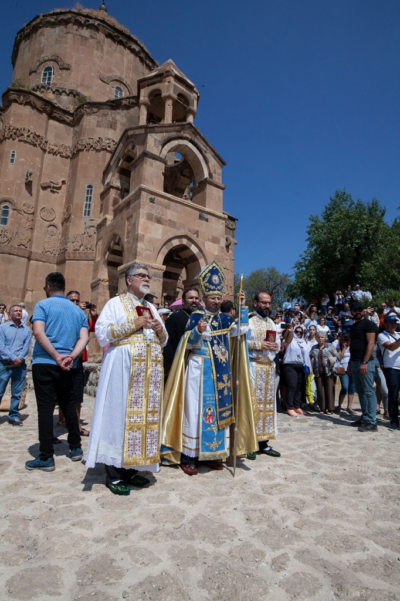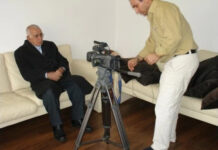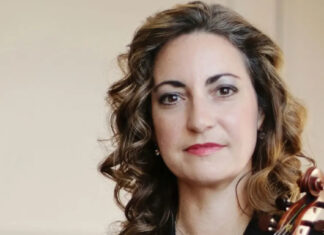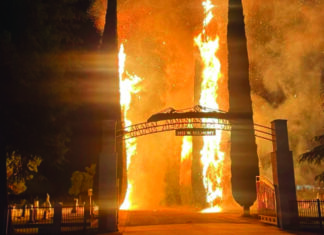NEW YORK — It was a unique and unusual event at a top gallery in New York’s art district. Bishop Sahak Mashalian, Locum Tenens of the Armenian Patriarchate of Istanbul, and one of two candidates for the position of Patriarch, was in New York with a delegation of Armenian church and community leaders from Istanbul to open the photographic exhibition of the iconic Aghtamar (Holy Cross) Church on the picturesque shores of Lake Van.
The trip was organized and hosted by the Turkish Presidency which has embarked on a program to exhibit worldwide some of the ancient Christian churches in Anatolia.
Aghtamar was chosen as the first. There is no doubt that Turkey is sharing these treasures in order to present a more positive view of itself internationally, and to boost its tourism industry.
Though the cross has remained atop the church, it is a museum all year long except for one day when the Holy Badarak can be celebrated. In September 2019, Bishop Mashalian celebrated the Divine Liturgy. The church’s architectural beauty, scenic landscape and historic importance have made it a top touristic attraction for the thousands who visit it annually.
The opening reception on November 5 was attended by more than 100 invited guests (including Armenians, Greeks and Turks) who were also treated to pianist Sahan Arzruni playing several selections, including Alan Hovhanness’ masterpiece Aghtamar.
In his address in English at the reception, Mashalian explained that after the exhibition’s initial presentation in Istanbul a few months ago, he was convinced that this extraordinary photography had to be seen by a much larger audience. He then convinced the Turkish government to bring it to New York. The exhibition will next travel to London.










